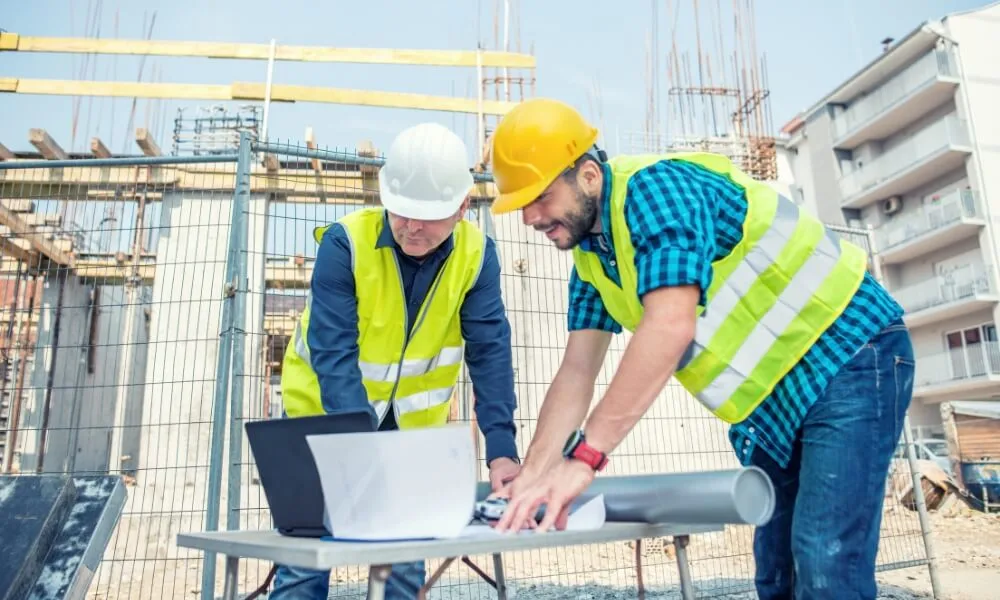The UAE’s construction industry is racing ahead, powered by groundbreaking architecture, ambitious urban visions, and an unwavering commitment to innovation. From the futuristic skylines of Dubai to sustainable smart cities like Masdar, success in this fast-moving sector depends on how efficiently projects are managed from planning to completion.
As competition intensifies and regulations evolve, traditional project management systems can no longer keep pace with the scale and complexity of modern construction. This is where the construction project management ERP tool powered by artificial intelligence (AI) emerges as a game-changer transforming how UAE contractors, developers, and engineers plan, execute, and monitor their projects.
Centralized Project Management and Real-Time Collaboration
One of the biggest hurdles in large-scale construction is fragmented communication. Siloed departments, delayed updates, and inconsistent reporting can cause costly misalignment. An AI construction management in UAE platform solves this by centralizing every piece of project data, blueprints, cost estimates, procurement orders, and compliance records into one integrated system accessible in real time.
Instead of juggling multiple spreadsheets and disconnected tools, all stakeholders from architects to site supervisors work within a single digital environment. This ensures that design revisions, procurement changes, and schedule updates are instantly visible to everyone involved.
For example, if a supplier delays the delivery of concrete slabs, the ERP system immediately alerts the scheduling team, who can adjust timelines or reallocate resources before a delay turns into a crisis. This transparency fosters accountability, speeds up decision-making, and ensures project goals remain aligned across all tiers of management.
Enhanced Efficiency Through AI Automation and Predictive Insights
AI is redefining efficiency in the UAE’s construction sector. By automating repetitive tasks such as material requisitions, vendor approvals, and daily reporting, project teams can redirect their focus toward value-driven operations. Machine learning algorithms within the construction project management ERP tool analyze historical project data to identify performance patterns and suggest improvements.
Imagine a system that learns from previous projects to forecast the number of workers required on-site next month or predicts when specific materials should be ordered to avoid idle time. AI makes this possible. Predictive analytics empower project managers to foresee potential delays or cost overruns weeks in advance, giving them the ability to take corrective action early.
This shift from reactive to proactive management minimizes risks and significantly improves productivity. As a result, construction companies in the UAE are seeing shorter project durations, reduced administrative overhead, and greater operational control.
Accurate Budgeting and Real-Time Cost Control
Budget overruns are a recurring challenge in construction. Fluctuating material costs, unexpected labor requirements, and last-minute design changes can quickly derail financial plans. AI-enabled ERP systems combat this by leveraging data from past projects, supplier trends, and current market fluctuations to build more accurate budget forecasts.
Every time an expense is recorded or a purchase order is updated, the system automatically aligns the actual cost with the approved budget. These live insights help project managers identify discrepancies immediately and take timely corrective measures. Over time, the ERP tool builds an intelligent financial model, allowing teams to refine future cost projections with remarkable precision.
Such automation and data accuracy have positioned AI construction management in UAE as a key driver of financial discipline, ensuring projects remain profitable without compromising on quality or deadlines.
Improved Safety and Risk Mitigation
Construction safety is paramount, particularly in the UAE where large-scale infrastructure and high-rise projects dominate the landscape. AI-powered ERP tools are now integral to maintaining compliance and minimizing on-site risks.
Through computer vision technologies, integrated ERP systems can monitor video feeds from worksites to detect unsafe behavior such as workers not wearing helmets or safety harnesses and instantly alert supervisors. Drones equipped with AI vision can perform hazardous inspections like scaffolding checks or roof assessments without endangering personnel.
Predictive safety analytics also identify potential accident-prone zones by analyzing patterns from past incidents. By combining this intelligence with real-time alerts and automated safety training logs, companies can drastically reduce workplace injuries and improve overall site safety culture.
Sustainability and Smart Design Optimization
The UAE has made sustainability a national priority, embedding green building principles into its construction strategy. AI-driven ERP platforms are now playing a pivotal role in helping companies design and deliver eco-efficient projects.
Generative AI algorithms assist architects and engineers by creating thousands of energy-optimized design variations based on parameters like building orientation, material selection, and airflow patterns. This not only speeds up design iteration but also ensures structures meet global sustainability benchmarks.
AI-enabled modeling tools within the ERP suite further simulate energy consumption and water usage to optimize efficiency before construction even begins. By integrating sustainability metrics directly into the construction project management ERP tool, developers gain a holistic view of environmental impact, cost, and performance, accelerating their journey toward LEED certification and compliance with UAE’s green building regulations.
Seamless Regulatory Compliance and Documentation
Navigating the UAE’s complex regulatory framework can be daunting for construction firms. Labor law adherence, tax compliance (VAT, GST), and documentation requirements like Ejari registration demand meticulous recordkeeping.
ERP solutions automate these compliance processes by tracking documentation, expiration dates, and policy changes in real time. If a permit is due for renewal or a safety certificate needs updating, the system sends proactive reminders.
Furthermore, AI assists in identifying inconsistencies or missing documents before audits occur, reducing legal exposure and preventing costly penalties. For companies handling multiple projects across different emirates, centralized compliance dashboards ensure every site remains aligned with local and federal laws.
Conclusion
The UAE’s construction sector stands at the forefront of global innovation, and the integration of AI-driven ERP solutions is reshaping how projects are executed. These systems deliver efficiency, safety, and sustainability while empowering teams with predictive insights and real-time control.
For organizations seeking a smarter way to manage resources, meet deadlines, and ensure compliance, adopting the construction project management ERP tool is a strategic step forward.
To explore how advanced digital solutions can redefine your approach to construction management, discover the intelligent, AI-powered tools offered by ePROMIS where technology meets transformation for the modern builder.

